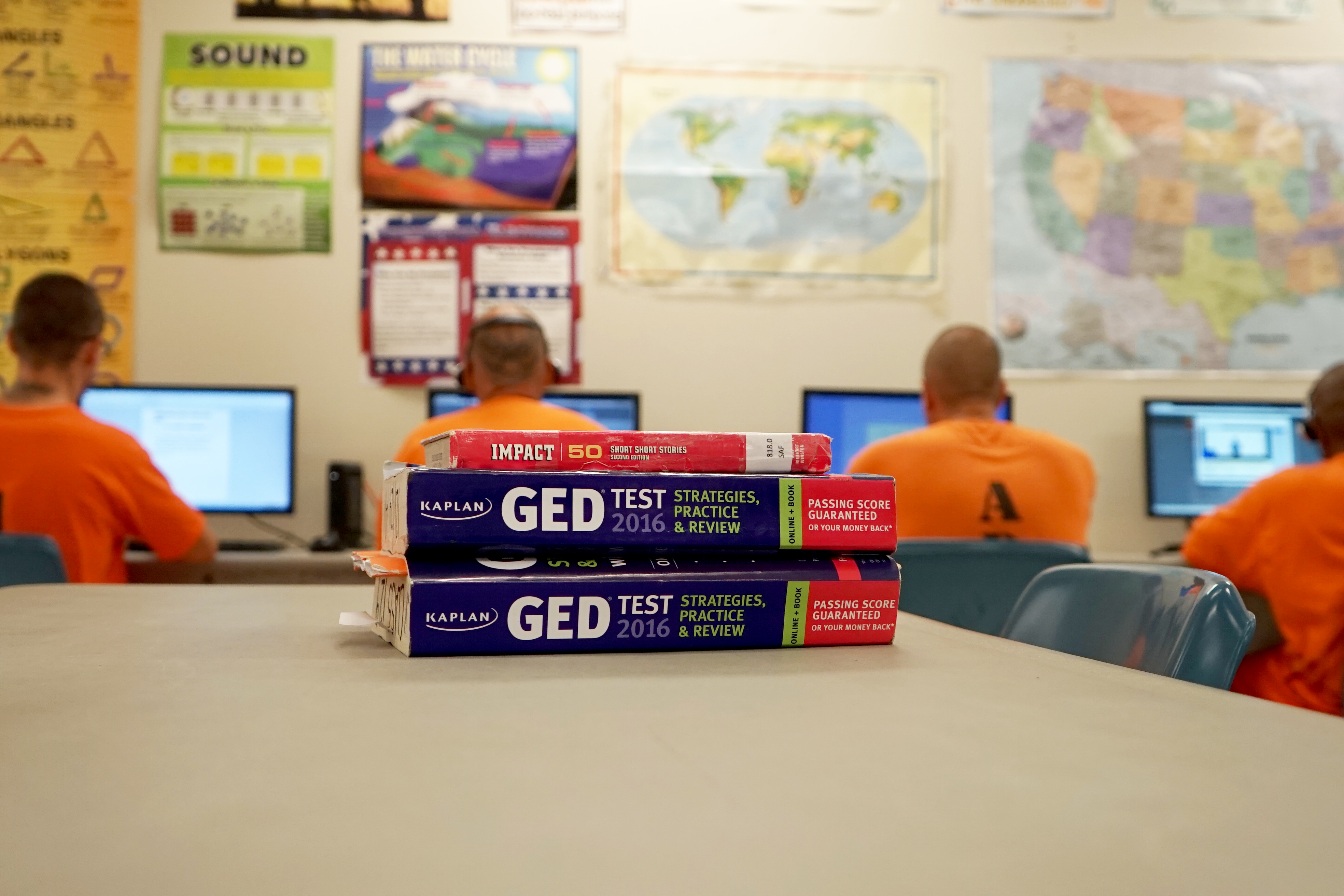
A study published by the RAND Corporation found that on average, individuals who participate in education programs while incarcerated have 43 percent lower odds of returning to prison. Additionally, the study found that every dollar spent on inmate education reduced incarceration costs in the first three years post-release.
Most justice-involved individuals return to their communities after incarceration. That's why CoreCivic invests in evidence-based rehabilitation programs that help individuals prepare for reentry from day one.
"No matter where an inmate starts, CoreCivic has an educational program to meet their needs and to nudge them in the right direction," said Michelle Cotter, director of Educational Services at CoreCivic.
As reentry professionals, CoreCivic team members help those in our care use their time with us as effectively and efficiently as possible. Beginning on day one, returning citizens are assessed to determine the best tools, resources, and programs needed to support successful reentry. Based on the results, a multi-disciplinary team designs an Individual Program Plan to address each individual's needs throughout their incarceration.
"Each person is different and will have their own set of challenges after they leave our facilities," said Matt Moore, senior director of Reentry Services. "That being said, there are a number of programs we provide that teach people how to be successful once they reenter their communities."
.MP4.00_23_46_21.Still005.jpg?width=636&name=CoreCivIC%202021-01%20Trousdale%20Grad%20Ceremony%20(1).MP4.00_23_46_21.Still005.jpg)
CoreCivic provides a robust platform of program options to meet the varying needs of residents wherever they are in their journey. Our goal is to strengthen their educational foundation, provide vocational training and skills development, create good work habits for employability, and generally prepare returning citizens for release.
The results have been encouraging. Between 2015 and 2020, CoreCivic had nearly 6,700 individuals in our care earn a GED or high school equivalency diploma. Between 2014 and 2019, CoreCivic also helped 23,000 individuals earn an Industry Recognized Certification (IRC) in career areas like carpentry, masonry, and computer coding. Another 3,200 individuals completed victim impact training.
"We pride ourselves on having a successful correctional education program, and providing evidence-based programming opportunities for those wanting to climb out of illiteracy, learn a technical skill, or even get a college degree," Cotter said. "Because our ultimate goal is to return people to society with the best possible chance to be self-sufficient and able to support their families."
When individual needs are met, returning citizens experience a smoother transition back to the community, and they are less likely to recidivate. By providing the proper tools for success from day one, CoreCivic is paving the way to a brighter future for those in our care.
